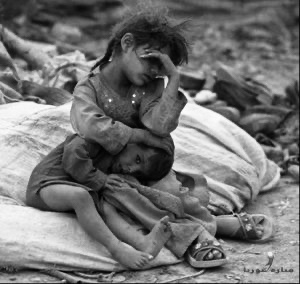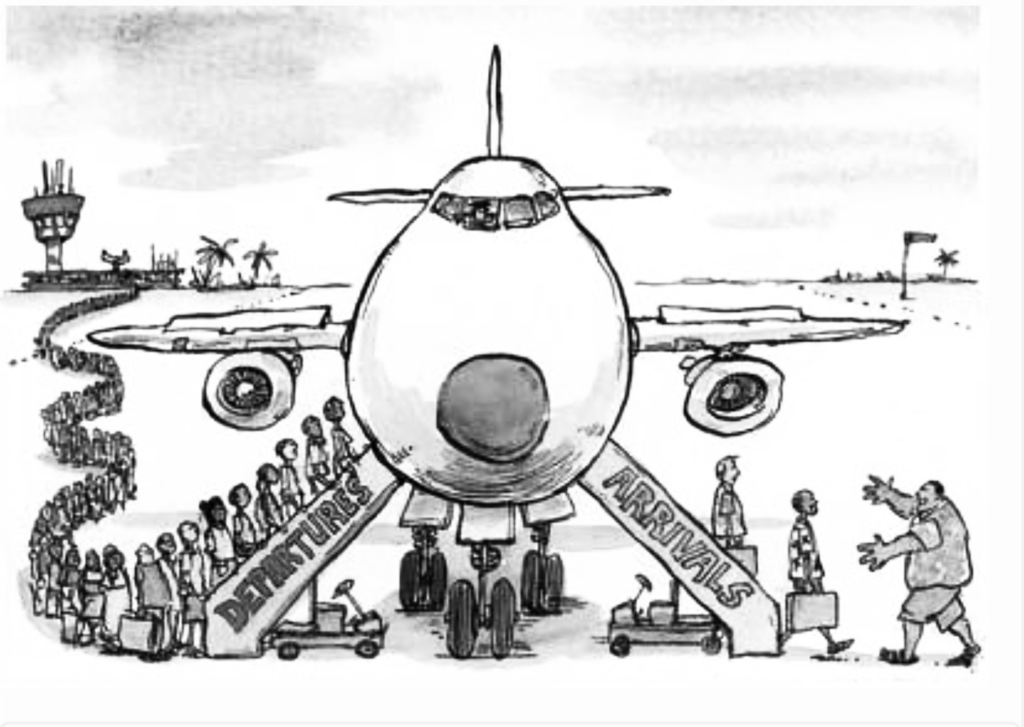Why Rethink?
If you love Islam and the Prophets ﷺ, as we do, do you ever feel disappointed: that the state of our ummah, our global community, is far from great? That this situation has transpired despite our having received excellent guidance from God/Allah, the most beneficient and merciful, through our most awesome holy Quran.1

Do you wonder why the majority of our billion-plus fellow Muslim brothers and sisters live in painful poverty, despite our somber and sincere efforts to please and praise our esteemed Creator?
Do you wonder why the average Muslim is perhaps no better in terms of inter-personal ethics than the average non-Muslim we meet, as has been my personal experience living in the East, the West and the Middle East?2
Consider this a provocative prescription for improving the health of the ummah, within a Quran-led framework, and with a scientific filter rather than scientism.3 I write as a cosmic student in pursuit of the truth (talib al Haqq), as one who loves Islam yet struggles to understand why we have not, as a community, benefited from it to the fullest extent possible.
The Brain Drain

The ‘unmosqued’ matter. Have you ever met people who stopped practicing Islam, either overtly or covertly, despite being raised in a Traditionalist family? Too many youth, especially those scientifically-minded or analytically-oriented, are quietly walking away from Islam, turned-off by insipid Traditional interpretations. This includes perhaps as many as half of Muslim kids raised in America.4 The unmosqued phenomenon is playing out in most parts of the Muslim world, and is most prevalent in the more prosperous and progressive parts of it. It is a result of narrow interpretation and the extreme positioning of traditional Islamic intellectuals. There are diverse ways to interpret the message of the Quran and mission of the Prophet ﷺ, and only Allah ﷻ truly knows which one is the more correct, wa allahu ‘a’lam. To solve the Big Five problems, should we not interpret the religion in a manner that maximizes human potential? Should that not be a preferred path to prepare for the eternal life to come?
Why does the Brain Drain matter? Because we have big problems that need smart solutions. There are more poor Muslims in the world than there are people in Africa; the scale of the problem is immense. We can not solve the poverty problem without first plugging the brain drain.
Can we create a better material world, dunya, en route to a cherished afterlife, akhirat? Or should we be quietists and skip this worldly anguish until the akhirat?5 For those of us who actively choose to improve the human condition in this dunya, our biological imperative, and view it as an industrious and meritorious path to a better akhirat, the question becomes: why are we lagging so far behind in science and mathematics, the modern engines of progress? Why are so many of our countries so low on the human development index? Why are we not leading the human rights movement, despite being blessed with a Book that was presented as the world’s greatest advocate for social justice? Why do Traditionalists disagree with BioIslam’s view that the Prophet ﷺ ended riq-slavery in his vicinity but later rulers reintroduced it? If the Traditionalist view – that the Prophet did not end riq-slavery but encouraged manumission and kindness toward slaves – is correct, why did it take the ulama so long to abolish, or at least condemn, slavery? Should they not have done it well before, rather than after, Europe did? To repeat, with lament, why are we perhaps no more ethical than non-Muslims (on average), despite the many moral entreaties of the Quran?
Why “Bio”
A solution to the Brain Drain, and to all the Big Five problems, lies in the bioscientific spirit inherent in the Quran. Driven by it, remarkable Muslim intellectuals led the world in the first millennium of Islam, contributions that later benefited Europe’s soi-disant ‘Enlightenment’. They include the founder of the scientific method, Ibn al-Haytham, the proponent of modern algebra and algorithms, al-Khwarizmi, and many more.6
I use the term bioscientific to highlight the Quran’s explicit references to the splendid science of biology (86:5-6) and biochemistry (96:2, 23:14), its appeal to respect Allah’s creation, the biosphere (6:99, 16:65, 50:9) and biodiversity (30:22). The cultural biodiversity of the billion-plus Muslims worldwide is breathtaking. With the genomic revolution underway, we are poised to make profound scientific advances that result in bioethical challenges and challenge Traditional views. Ironically, even those who strongly reject modernity and scientific materialism, eagerly seek the benefits of bioscience, especially modern medicine, even at the expense of delaying their return to their Creator. Since a bioscientific approach to Islam can improve the human condition, Traditional Muslims must reexamine their assumptions of what Islam is really about. We are at the cusp of exponential growth in science-led well-being, giving rise to the daring transhuman dream of ending suffering. That is the highest common good, the maslaha al ulya.
Solve the “Big Five”
In that spirit of approaching Allah ﷻ with the highest of love and sincerity, BioIslam offers an attractive solution to people who are unable to turn off their scientific orientation and analytic bias. Such people are consequently, despite good intention (niyya), unable to accept those Traditionalist interpretations that contradict their innate analytic wiring. BioIslam mediates the tension between the docile and dogmatic acceptance of tradition, versus the vigor and rigor of scientific inquiry. It informs us that an excellent path to prepare for the afterlife (akhirat) is to engage with this material world (dunya) in a way that powerfully combines our productive and altruistic capacities, which is science-led theohumanism. It proposes a vision of Islam that is best prepared to address the big ethical challenges of the next century, which include bioethical ones.
“Bio” signifies “Built Inside Out” along two dimensions. First, on the dimension of spiritual knowledge, searching for the latent principles encoded deep “inside” the Quran, without assistance from “outside” sources such as the Sahih Hadith.7 As with the biosphere, the Quran is complete and self-explaining, which contradicts the Traditionalist interpretation of Islam, as we will see later. The role of the post-Quranic sources is to illustrate rather than aid in inductive interpretation. Those fallible sources might contain valuable nuggets, and unlike the Quran-only advocates, should not be totally trashed.
Second, on the dimension of human conduct, BioIslam prioritizes interior piety (taqwa) over exterior conformity. While Traditional Islam advocates the latter, and hopes it will eventually lead to the former, the empirical evidence is sadly weak; too many people who project religion via their exterior behave in a way that belies a dark interior. Some might label BioIslam’s interiority a Sufi view, but I do not since there are too many conflicting views of what is and isn’t authentically Sufi. Furthermore, the pro-science and amystical problem-solving orientation of BioIslam, and BioIslam’s inside pillar of human potentiality is self-affirming, which many would deem antithetical to the Sufi ethos of self-negation.
Alas, Zakat is Not Enough
Most importantly, if we subscribe to BioIslam, we can solve the Big Five interlinked problems of our ummah. As noted earlier, the most visible problem is Poverty, which the Muslim world is drowning in. Some assert that if wealthy Muslims paid zakat faithfully, poverty would vanish. This is wistful. Zakat alone won’t erase poverty since the depth of our poverty is due to bad ideological choices our authoritarian leaders have made in centuries past, on both political and religious fronts. The dogmatic structure of Islamic Traditionalism, grounded in taqlid, which is the pious imitation of the prior era’s scholars, inhibited idea formation and transmission, which are key processes to escape poverty.
To prosper, what we need is the ‘beauty of ideas’, since ideas underpin the transmission of technologies, which is the main mechanism of poverty reduction. “The beauty of ideas is that they can be used over and over again, without ever being depleted. Economists call ideas nonrival in the sense that one person’s use of an idea does not diminish the ability of others to use it as well. This is why we can envision a world in which everybody achieves prosperity”, says a leading scholar.8 Another scholar notes how prior to 1800 CE there was no sustained reduction in poverty in the world – “the average person in the world of 1800 was no better off than the average person of 100,000 BC. Indeed in 1800 CE the bulk of the world’s population was poorer than their remote ancestors… the vast swatch of humanity in East and South Asia, particularly in China and Japan, eked out a living under conditions probably significantly poorer than those of cavemen”. This is due to the Malthusian Trap, which “ensured that short-term gains in income through technological advances were inevitably lost through population growth”.9
So, for those of us who wish to see the Muslim ummah break out of poverty, we must accept that incremental change may not be sufficient. The structure imposed by our Traditional scholars needs to be shaken up with a substantial infusion of new ideas, with the goal of a science-led acceleration out of poverty. This is the motivation for BioIslam. The ideas herein can help shrink Poverty, by first solving the Brain Drain problem, which is a result of the long-lived problems of Authoritarianism, Patriarchy and Sectarianism.
However, poverty alleviation is a necessary but not sufficient measure to creating a happier ummah. “The people of the world in 1800, in which all societies were relatively poor and communities were much more local in scope, were likely just as happy as the wealthiest nations of the world today, such as the United States… Modern man might not be designed for contentment. The envious have inherited the earth”.10
This is why postmodern secular humanism, and the cold and deterministic logic of the new atheism, is far from fully satisfying, as evidenced by the high levels of apathy, anomie and self-destructive behavior in prosperous, post-religious peoples. An appealing alternative is available, one which does not forsake the promise of science-led prosperity. By learning from the wisdom imparted by the Creator to the first generation of Muslims, as summarized by the Inside Pillars of BioIslam, we can iterate toward our preferred point of harmony – between the material and spiritual worlds, between the tangible appeal of this world and the intangible allure of the afterlife. In the aggregate, BioIslam aims for a theohumanistic outcome of piety, peace and prosperity for all.
Footnotes
- The word ‘Allah’ was commonly used by pre-Islamic Arabs and pre-modern Arab Christians to refer to ‘The God’. More recently, some Muslims in Malaysia, claim exclusivity to this label and resent the use of it by Malay Christians, an unfortunate and unIslamic viewpoint. Some scholars believe ‘al Lah’ was the main deity of the northern Arabian Meccan region, and had cognate deities in southern Arabia named ‘ar Rahman’ and ‘ar Rahim’. They posit that the monotheistic Allah, whose core attributes are Rahman and Rahim, is a triune union of the leading regional deities, a north-south fusion (Tim Mackintosh-Smith, The Arabs, 141-44). Even if such a speculative analysis is accurate, it does not take away from the monotheistic reaffirmation of Islam’s Allah being the same God known to the ancient Hebrews as Yahweh, and who manifested to Christians as the Lord Jesus, according to their trinitarian theology that was canonized in 4th c. CE.
- The low level of interpersonal trust is based on an informal survey – a small sample, based on personal observations, by me and others I have discussed this with. I once asked a very pious Traditionalist Muslim friend in the US whether he would prefer to launch a business with a Muslim partner or a non-Muslim one. He chose the latter. Sadly, too many Muslims would choose the same. Two other Traditionalist Muslim friends recently offered similar views; they are highly qualified people who provide high-end professional services to Muslims. Perhaps these are exaggerated responses that reflect disappointment with fellow Muslims, relative to the lofty moral entreaties of the faith. However, in the first case of business partner selection, the lack of either a preference for a Muslim, or at least a profession of neutral merit-based selection, suggests there is a widespread problem of trust in the ummah. Yet, I am old enough to know that the disease of dishonesty afflicts people of any faith and no faith, in perhaps equal proportion. Most likely, it depends primarily on whether the individual was raised in a country with strong secular institutions, such as courts to enforce contracts. But the vexing question remains, does it not behoove us Muslims to be better, given the long-lived institution of Traditional Islam?
- Scientism mistakenly believes all real knowledge can only be derived from science. ‘Scientism claims, or at least implicitly assumes, that rational knowledge is scientific, and everything else that claims the status of knowledge is just superstition, irrationality, emotion, or nonsense’, says a leading nuclear scientist (Ian Hutchinson, Monopolizing Knowledge, 1). Some see this as a ‘tyranny of science’. Instead, BioIslam relies on a scientific filter, where the Quran is interpreted with a pro-science tilt – since the natural world is written in the language of God, no interpretation can be sound if it contradicts settled science. I emphasize ‘settled’ since scientific findings are often tentative. However, when there is a consensus among leading scientists, even if it posits the invisible, such as the theory of gravity, we must accept it, and any scriptural claims to the contrary are metaphorical. This leaves room for the existence of an unseen reality, the ghayb – for example, the jinn, which are frequently referred to in the Quran, could well be part of this mysterious reality, we just don’t know.
- This trend toward the secular is present on other religions too, and is more likely to occur in pro-science people. 93% of the members of the American National Academy of Sciences do not believe in God, according to one survey. The big question is – how much of their disbelief is due to Spock-like logic vs. an uninspiring experience of religion during puberty?
- Quietism is advocated by many Muslim schools of thought, and is an exclusive focus of many or most Sufis. It calls for a passive prayer-centric life that is in total submission to Allah’s will, to the point of self-annihilation. An energetic effort to right earthly wrongs is deferred, since this life is viewed as very short, and recompense for current travails will only manifest in the afterlife. Other religions have a quietism tradition too, such as those Christians who choose to ‘turn the other cheek’, and a great many Buddhist schools.
- See 1001 Inventions, Muslim Heritage in Our World, for a simplified historical review of contributions by Muslims, and the Muslim roots of many European achievements. Deeper treatments of the same are provided by George Saliba, Islamic Science and the Making of the European Renaissance, Dimitri Gutas, Greek Thought, Arabic Culture, and Jim al-Khalili, The House of Wisdom.
- As noted earlier, we mean extract from Quran primarily rather than ‘Quran only’ since any reading of the Quran, or any other ancient text, assumes social constructs of language and culture that are unavoidably embedded in the mind of both lay readers and scholars. Thus, knowledge from outside the Quran inevitably impacts any reading of it.
- Jeffrey Sachs, in The End of Poverty, 40.
- Gregory Clark, A Farewell to Alms, 1.
- ibid, 16. This is due to the Easterlin paradox, where our happiness “depends not on our absolute well-being but instead on who we are doing relative to our reference group”.
